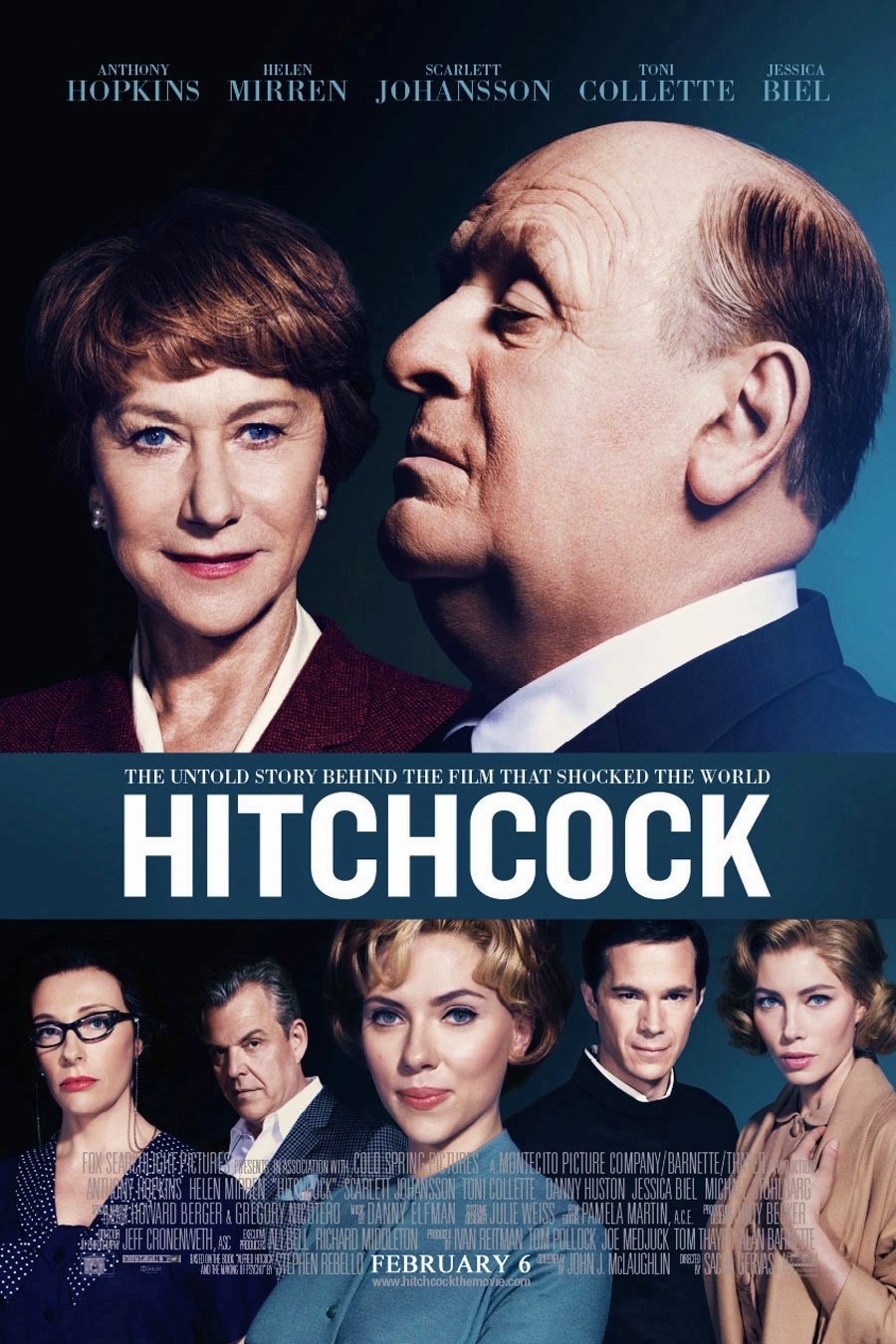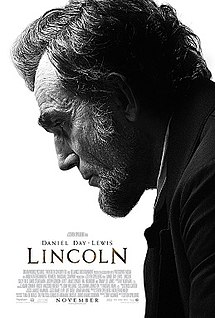Saturday, February 16, 2013
The Case for Impersonations
I'm running a little behind with my reviews at the moment, with two biopics on my viewing schedule this week.
First off was the Anthony Hopkins starring Hitchcock, with the Lecter-er in a fat suit and with adopting a very deliberate way of talking. Alfred Hitchcock is sixty and the studios seem think he is a little past his best. What is a man to do but bring the story of a disturbed man to life and make a movie masterpiece in the form of Psycho?
Easier said than done of course - the studio isn't convinced, the censors are outraged by the idea of seeing a toilet on screen (and a toilet flushing to boot!) and Hitchcock is on a diet as well, or at least supposed to be. The man's wandering eye also causes a bit of trouble considering the incredibly talented woman he is already married to, Alma Reville, in form of the ever amazing Helen Mirren.
Hopkins does a great turn as the Master of Suspense, ably supported by Mirren and a raft of magnificent supporting actors (Scarlett Johansson as the unflappable, sensible, stunning Janet Leigh? Of course! And the guy they found to play Anthony Perkins, James D'Arcy, does spooky scarily well) and the story chugs along with quite a few laughs, more knowing references and the odd bout of melodrama. It's all highly watchable really, though two people behind me felt the need to discuss all the references ("Oh, he talking about Psycho!") which had me reaching for a knife and and expecting to turn and plunge it through the shower curtain.
The film is not that long, and there is no real need to be. It isn't an exhaustive film showing the making of a cinematic classic, but focuses more on ageing and youth in Hollywood. There are some scenes that attempt to show the "inner turmoil" of the master as he grapples with his self doubts which aren't entirely successful, but these are brief and occasionally softened with a bit of humour. And, overall, the film is highly entertaining, even if at the same time, it never really feels like an outstanding, award-winning film.
Verdict 1: Hitchcock is a great biopic about the legendary man and his not so well known but unbelievably deserving wife. Packed with great actors in fabulous roles, and working towards what everyone knows will be a classic, its a great telling of a little story with a dash of murder most horrid thrown in as well. 8 out of 10 birds.
The second biopic of the week is in the form of the Oscar front runner Lincoln. Making a serious film about the US President that brought about civil war in his fight for an end to slavery was probably always going to get an Oscar nomination or tend, even without Steven Speilberg behind the helm and the amazing Daniel Day Lewis in the lead role. With them, well, they might just win those awards.
By all accounts, Lewis' portrayal of Lincoln is very true to life, and one has to imagine that Sally Field, as his wife Mary, is doing a great job as a shrill, semi hysterical, but devastatingly intelligent first wife.
Unsurprisingly with a film that as Oscar contender written all over it, there is no lack of thesping talent forcing itself into every nook, cranny, scene and role: Tommy-Lee Jones, James Spader, Joseph Gordon-Levitt and a whole lot of other familiar faces and names all squeezed into period costumes, big hair and mud.
The film focuses on the political battle in Washington, D.C. to pass the 13th Amendment to the American Constitution more than the battlefields further to the south. Some of the twisted and tortured logic by which Lincoln freed the slaves of the northern states to help fight the war with the southern ones were far too complicated for my mind to follow, but the gist was that the bill had to pass before the war was won, as peace with the southern states, who had declared independence and therefore were not voting as part of the Union, would not give enough motivation for the representatives from the remaining States to do the right thing. The twists and turns needed to get people to do the right thing, either through logic, emotional blackmail or plain bribery, is an interesting insight into the psyche of the time, with even characters in the film musing on the nature of a democracy and a freedom won by slight of hand and dirty dealings.
Nonetheless, the film is a lot of fun to watch - which it has to be given its pretty impressive length. Lincoln is shown as a teller of tales and a fairly smart, likable man determined to get this one thing done.
Surprisingly, there aren't that many black characters involved in any of this. The lives of slaves are not shown; the black characters in the north are all free (though in subservient roles, of course); and a black soldier having a pretty free and frank discussion with the President is about as deep as it goes into the whole lingering prejudice that a change in the law can't easily turn.
But that's a minor quibble. This is a very flag wave-y American story, and incredibly well told. Well, as long as the people sitting behind you aren't trying to tell their own version of history or comment along with the story as the film progresses (I had a bad week obviously). Definitely worth a look - and I will be curious to see how many awards this one walks away with.
Verdict: Lincoln is rock solid Oscar material: historical tragedy and triumph made by a master of film and starring an incredible chameleon and a supporting cast that most films would die for and who, possibly, for the chance to work on this film, would have done so for free. 11 out of 13 amendments.
Subscribe to:
Post Comments (Atom)





No comments:
Post a Comment